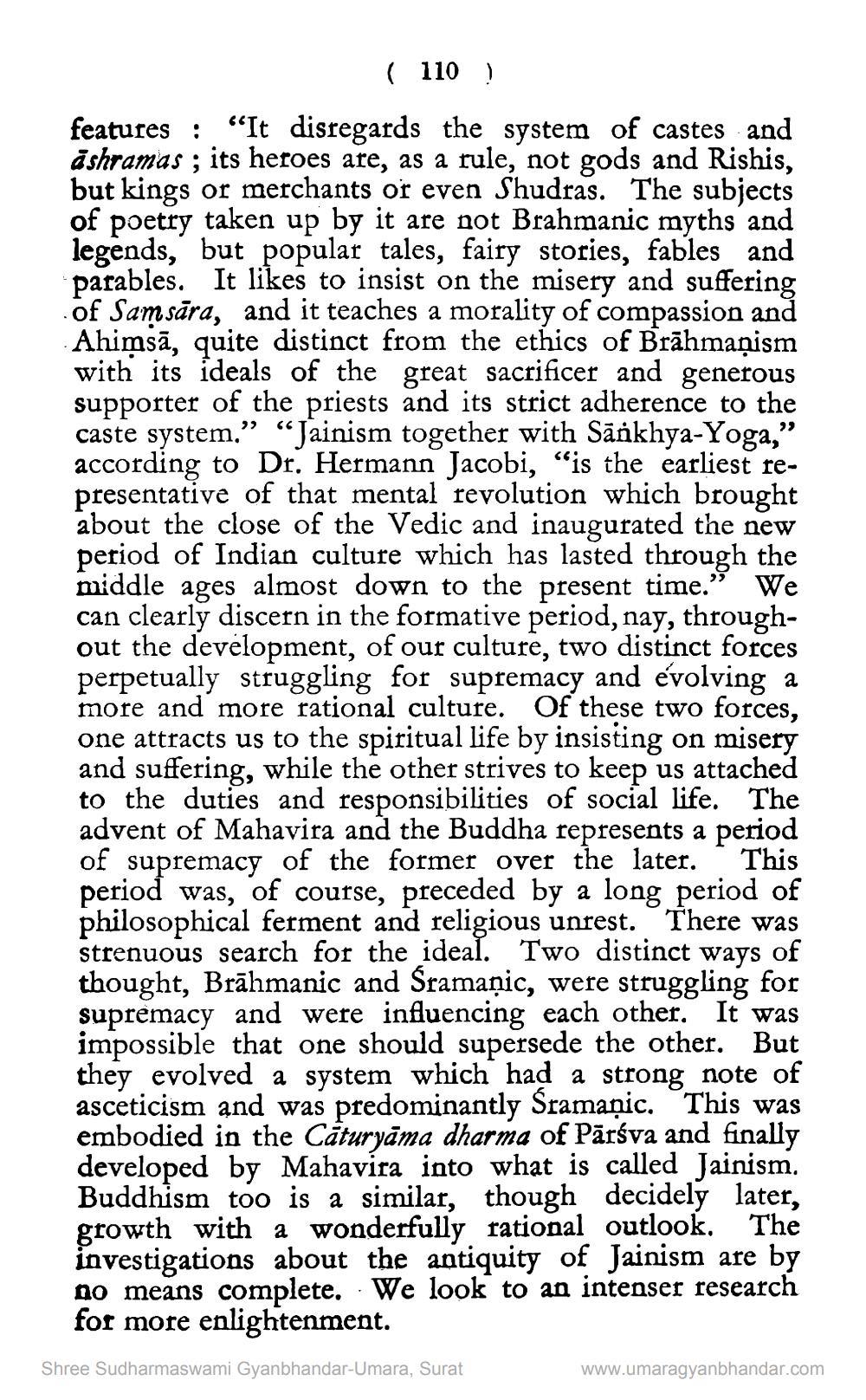________________
( 110 )
features : "It disregards the system of castes and ashramas; its heroes are, as a rule, not gods and Rishis, but kings or merchants or even Shudras. The subjects of poetry taken up by it are not Brahmanic myths and legends, but popular tales, fairy stories, fables and parables. It likes to insist on the misery and suffering of Samsara, and it teaches a morality of compassion and Ahimsa, quite distinct from the ethics of Brāhmaṇism with its ideals of the great sacrificer and generous supporter of the priests and its strict adherence to the caste system." "Jainism together with Sankhya-Yoga," according to Dr. Hermann Jacobi, "is the earliest representative of that mental revolution which brought about the close of the Vedic and inaugurated the new period of Indian culture which has lasted through the middle ages almost down to the present time.' We can clearly discern in the formative period, nay, throughout the development, of our culture, two distinct forces perpetually struggling for supremacy and evolving a more and more rational culture. Of these two forces, one attracts us to the spiritual life by insisting on misery and suffering, while the other strives to keep us attached to the duties and responsibilities of social life. The advent of Mahavira and the Buddha represents a period of supremacy of the former over the later. This period was, of course, preceded by a long period of philosophical ferment and religious unrest. There was strenuous search for the ideal. Two distinct ways of thought, Brahmanic and Sramanic, were struggling for supremacy and were influencing each other. It was impossible that one should supersede the other. But they evolved a system which had a strong note of asceticism and was predominantly Sramanic. This was embodied in the Caturyāma dharma of Parsva and finally developed by Mahavira into what is called Jainism. Buddhism too is a similar, though decidely later, growth with a wonderfully rational outlook. The investigations about the antiquity of Jainism are by no means complete. We look to an intenser research for more enlightenment.
Shree Sudharmaswami Gyanbhandar-Umara, Surat
www.umaragyanbhandar.com




